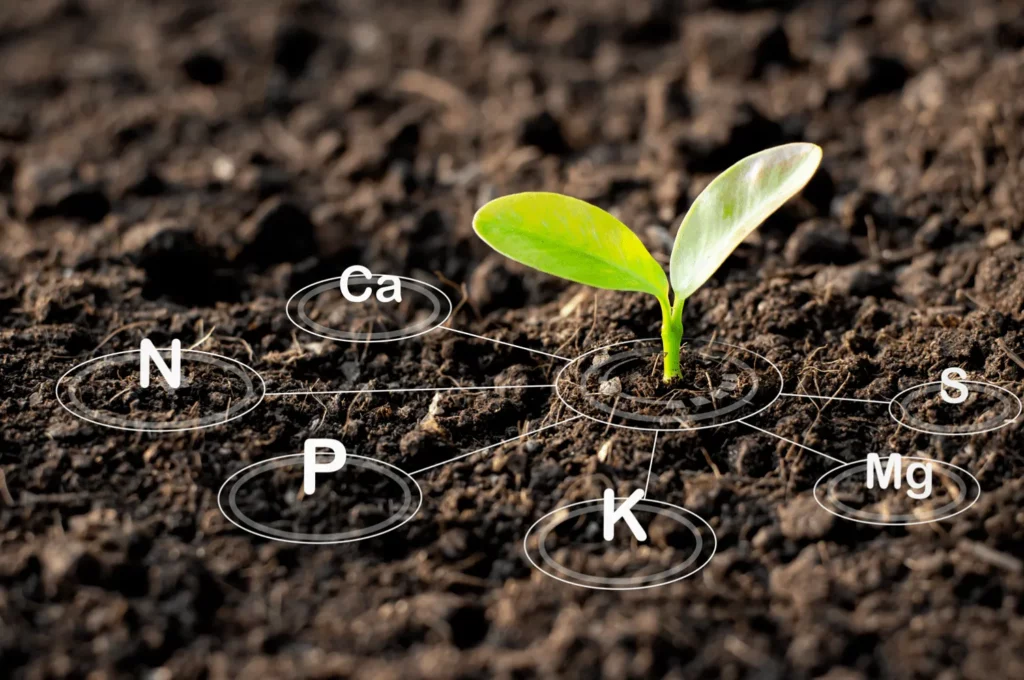
Soil health and nutrient management are foundational elements of sustainable agriculture, playing a critical role in maximizing crop productivity and ensuring food security. So in this blog post, we’ll explore how soil health and effective nutrient management practices contribute to enhancing crop productivity and sustainable agricultural systems.
Soil Health and Fertility:
Soil health encompasses a range of physical, chemical, and biological properties that support plant growth and ecosystem functioning. Healthy soils are characterized by good structure, adequate nutrient content, balanced pH levels, and thriving microbial communities. By maintaining optimal soil health, farmers can create an environment conducive to root development, nutrient uptake, and overall crop vigor.
Nutrient Availability and Uptake:
Nutrients are essential for plant growth and development, playing key roles in various physiological processes such as photosynthesis, protein synthesis, and enzyme activation. Adequate nutrient availability in the soil is crucial for ensuring optimal plant growth and maximizing crop yields. Effective nutrient management practices aim to optimize nutrient availability in the root zone, facilitating efficient nutrient uptake by plants
Balanced Fertilization:
Balanced fertilization is a cornerstone of effective nutrient management, ensuring that crops receive the essential nutrients they need in the right proportions. This involves applying fertilizers containing a balanced mix of macronutrients (nitrogen, phosphorus, potassium) and micronutrients (such as iron, zinc, and manganese) according to crop requirements and soil nutrient levels. By providing crops with the nutrients they need at critical growth stages, farmers can promote healthy plant growth and optimize yield potential.
Soil Organic Matter and Microbial Activity:
Soil organic matter (SOM) plays a vital role in maintaining soil fertility and supporting microbial activity. Organic matter serves as a source of nutrients for plants and soil microorganisms, releasing nutrients gradually as it decomposes. Additionally, soil microbes play key roles in nutrient cycling, decomposition, and organic matter turnover, contributing to soil health and nutrient availability. By increasing soil organic matter content through practices such as cover cropping, crop residue management, and compost application, farmers can enhance soil fertility and promote sustainable crop production.
Soil pH and Nutrient Availability:
Soil pH influences nutrient availability and uptake by affecting the chemical forms of nutrients in the soil. Different nutrients exhibit varying levels of availability across different pH ranges. For example, acidic soils may have reduced availability of essential nutrients like phosphorus, calcium, and magnesium, while alkaline soils may limit the availability of micronutrients such as iron and zinc. Maintaining optimal soil pH levels through liming or acidification can enhance nutrient availability and support healthy crop growth.
Crop Rotation and Diversity:
Crop rotation and diversification are effective strategies for managing soil health and nutrient availability over the long term. Rotating crops with different nutrient requirements basically helps prevent nutrient depletion and buildup of pests and diseases associated with monoculture systems. Additionally, including leguminous crops in rotations can enhance soil fertility through biological nitrogen fixation, reducing the need for synthetic nitrogen fertilizers and promoting sustainable nutrient management.
Conclusion:
In conclusion, soil health and effective nutrient management are essential components of sustainable agriculture, contributing to enhanced crop productivity, environmental sustainability, and food security. By prioritizing practices that promote soil health, balanced fertilization, organic matter management, and crop diversity, farmers can optimize nutrient availability, support healthy plant growth, and achieve higher yields while minimizing environmental impacts. Embracing these principles holds the key to building resilient agricultural systems capable of meeting the challenges of feeding a growing global population in a sustainable manner.
